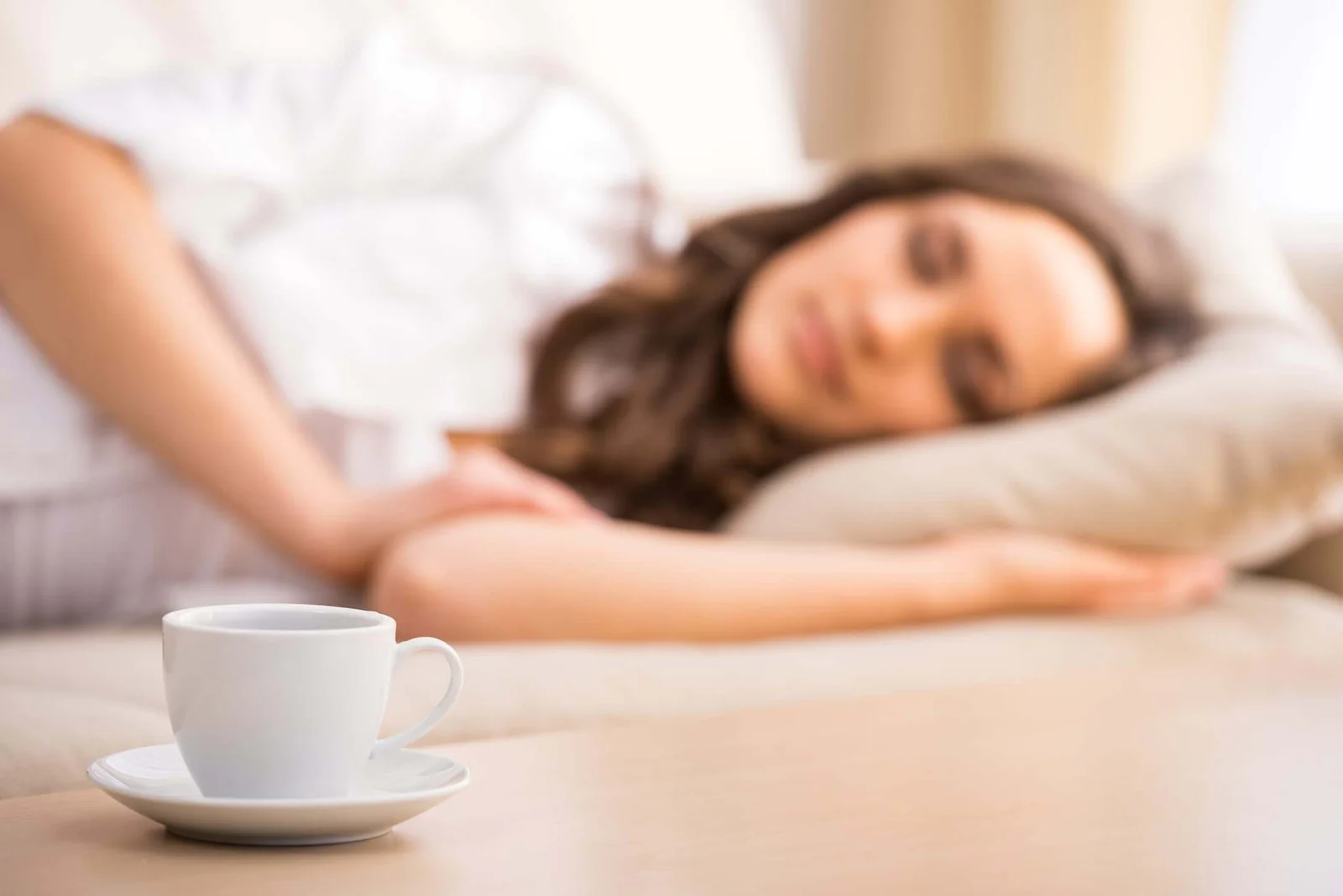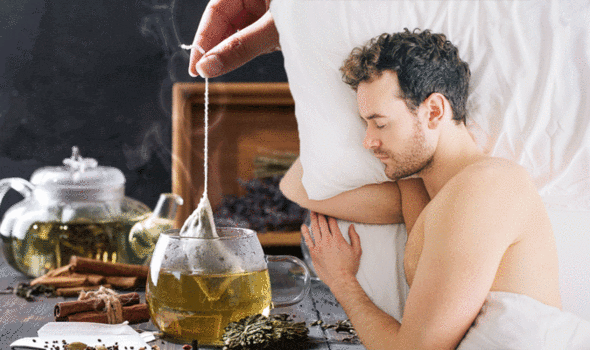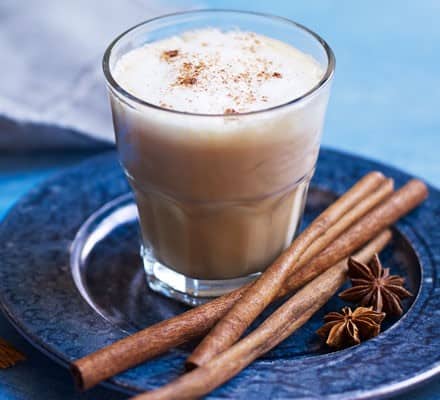Are you looking for Tea for Better Sleep? Herbal teas, such as chamomile, valerian root, or lavender, are known for their calming and soothing properties, making them effective natural remedies to promote better sleep and relaxation.
The Ultimate Guide to Tea for Better Sleep: Tips, Tricks, and Recipes
Sleep is an essential part of our daily lives, and getting a good night’s rest is crucial for our overall health and well-being. However, many people struggle with falling asleep or staying asleep throughout the night. This is where tea can come to the rescue.
Tea has been used for centuries as a natural remedy for various ailments, including sleep disorders. In this article, we will explore the benefits of tea for better sleep and discuss the different types of tea that can help promote a restful night’s sleep.
Understanding the Science behind Tea and Sleep
To understand how tea can help improve sleep, it’s important to understand how it affects the body and brain. Tea contains various compounds, including caffeine, theanine, and antioxidants, which can have different effects on sleep.
Caffeine is a stimulant that can interfere with sleep by blocking the effects of adenosine, a neurotransmitter that promotes sleep. On the other hand, theanine is an amino acid found in tea that has a calming effect on the brain and can help promote relaxation and sleep.
The Different Types of Tea and their Effects on Sleep
There are several types of tea available, each with its own unique properties and effects on sleep. Green tea is known for its high levels of antioxidants and theanine, making it a good choice for promoting relaxation and reducing anxiety.
Black tea contains more caffeine than green tea but also has higher levels of theanine, making it a good option for those who want a balance between alertness and relaxation. White tea is the least processed type of tea and contains high levels of antioxidants, making it a good choice for overall health and well-being.
Here’s a table outlining some of the best types of tea for better sleep:
| Tea Type | Description |
|---|---|
| Chamomile | Herbal tea known for its calming and relaxing effects, promoting better sleep and reducing insomnia. |
| Valerian Root | Herbal tea with sedative properties, effective in inducing relaxation and improving sleep quality. |
| Lavender | Herbal tea with calming aroma and stress-relieving properties, aiding in relaxation and promoting restful sleep. |
| Passionflower | Herbal tea known for its mild sedative effects, helping to alleviate anxiety and improve sleep patterns. |
| Lemon Balm | Herbal tea with soothing properties, reducing stress and anxiety to promote better sleep. |
Best Tea Brands for a Good Night’s Sleep
When choosing tea for better sleep, it’s important to choose high-quality brands that prioritize freshness and flavor. Some recommended brands include Harney & Sons, Yogi Tea, and Traditional Medicinals.
These brands offer a wide range of teas specifically designed to promote sleep and relaxation. Factors to consider when choosing tea for sleep include the quality of the ingredients, the brewing process, and the taste.
How to Brew the Perfect Cup of Tea for Better Sleep
Brewing the perfect cup of tea for better sleep involves a few simple steps:
- Choose Your Tea: Opt for a calming herbal tea such as chamomile, valerian root, lavender, passionflower, or lemon balm, known for their relaxing properties.
- Use Fresh, Filtered Water: Start with fresh, cold water, and if possible, use filtered water to avoid any impurities that could affect the taste.
- Heat Water to the Right Temperature: Different teas require different water temperatures. For herbal teas, water just below boiling (around 200°F or 95°C) is usually suitable.
- Measure Your Tea: Use about 1 to 2 teaspoons of loose leaf tea per cup, or follow the recommended instructions for tea bags.
- Steep Your Tea: Steep the tea for about 5 to 7 minutes to extract the maximum flavor and benefits. Steeping for too long may result in a bitter taste, so adjust according to your preference.
- Cover While Steeping: Cover your tea while steeping to retain the volatile oils responsible for the tea’s aroma and potential health benefits.
- Strain or Remove the Tea: Once steeped, strain loose leaf tea or remove tea bags to prevent over-extraction and bitterness.
- Optional Additions: Add honey, lemon, or a splash of milk if desired, but avoid adding caffeine or sugar, which may interfere with sleep quality.
- Sip and Relax: Enjoy your tea in a calm, comfortable environment, ideally about 30 minutes to an hour before bedtime to allow your body to relax and unwind.
Tea Blends for Insomnia and Anxiety
There are several tea blends available that are specifically designed to promote sleep and reduce anxiety.
Some popular blends include chamomile and lavender, which have calming properties and can help relax the mind and body.
Another popular blend is valerian root and passionflower, which have sedative effects and can help induce sleep. These blends can be found in various forms, including loose leaf teas, tea bags, and herbal supplements.
Herbal Teas for Relaxation and Stress Relief
In addition to traditional teas, herbal teas can also be beneficial for promoting relaxation and stress relief. Some popular herbal teas for relaxation include peppermint, lemon balm, and chamomile.
Peppermint tea has a soothing effect on the digestive system and can help relax muscles. Lemon balm tea has a calming effect on the nervous system and can help reduce anxiety. Chamomile tea is well-known for its calming properties and is often used as a natural remedy for insomnia.
Tea Recipes for a Calming Bedtime Ritual
Here are two soothing tea recipes to incorporate into your bedtime ritual:
1. Chamomile Lavender Bedtime Blend:
Ingredients:
- 1 tablespoon dried chamomile flowers
- 1 teaspoon dried lavender buds
- 1 teaspoon dried lemon balm leaves (optional for added flavor)
- Honey or maple syrup (optional, for sweetness)
Instructions:
- Boil 1 cup of water in a small saucepan or kettle.
- Place the chamomile flowers, lavender buds, and lemon balm leaves (if using) in a tea infuser or teapot.
- Pour the hot water over the herbs and cover with a lid or saucer to steep for 5-7 minutes.
- Remove the infuser or strain the tea into a cup.
- Add honey or maple syrup to taste, if desired.
- Sip slowly and mindfully, allowing the calming aroma and flavors to relax your body and mind before bedtime.
2. Spiced Sleepy Chai Latte:
Ingredients:
- 1 cup milk (dairy or plant-based)
- 1 cinnamon stick
- 2-3 whole cloves
- 2-3 cardamom pods, lightly crushed
- 1 teaspoon grated fresh ginger
- 1 teaspoon honey or maple syrup (optional, for sweetness)
- Black tea bag or loose leaf black tea (optional, for a caffeinated version)
Instructions:
- In a small saucepan, heat the milk over medium-low heat until it starts to simmer.
- Add the cinnamon stick, cloves, cardamom pods, and grated ginger to the milk.
- Let the spices simmer gently in the milk for about 5 minutes, stirring occasionally.
- If using black tea, add a tea bag or 1-2 teaspoons of loose leaf black tea to the saucepan and steep for an additional 3-5 minutes.
- Remove the saucepan from the heat and strain the spiced milk into a cup, discarding the spices and tea leaves.
- Stir in honey or maple syrup to taste, if desired.
- Enjoy the warm and comforting spiced chai latte as part of your calming bedtime ritual, allowing it to lull you into a peaceful night’s sleep.
These tea recipes are perfect for creating a calming bedtime ritual, helping you relax and unwind before sleep. Adjust the ingredients and flavors according to your preferences, and enjoy the soothing benefits of these comforting beverages.
Tea Accessories to Enhance Your Sleep Experience
To enhance your sleep experience, there are several tea accessories that can be used. Some recommended accessories include a high-quality tea infuser or strainer, a tea kettle with temperature control, and a cozy tea mug or teapot.
These accessories can help make the tea brewing process more enjoyable and can add to the overall relaxation and comfort of your bedtime routine.
Tips for Incorporating Tea into Your Nighttime Routine
To make tea a regular part of your sleep routine, it’s important to establish a consistent bedtime ritual. Some tips for incorporating tea into your nighttime routine include setting aside dedicated time each evening to brew and enjoy a cup of tea, creating a calming environment by dimming the lights and playing soft music, and avoiding electronic devices and stimulating activities before bed.
By making tea a regular part of your nighttime routine, you can signal to your body that it’s time to wind down and prepare for sleep.
The Power of Tea for a Restful Night’s Sleep
In conclusion, tea can be a powerful tool for promoting better sleep and relaxation. Whether you prefer traditional teas like green or black tea or herbal teas like chamomile or peppermint, there are plenty of options available to suit your taste preferences and sleep needs.
By incorporating tea into your bedtime routine and choosing high-quality brands and blends, you can enhance your sleep experience and enjoy the many benefits that tea has to offer. So, brew yourself a cup of tea, sit back, and prepare for a restful night’s sleep.




